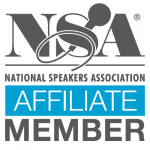Last week was another one of those weeks, where the news-cycle was a maelstrom of bad news. The world seems an ever-increasing warzone—with conflicts occurring on borders in seemingly every corner of the globe.
On the heels of the latest escalation in the longstanding territory-dispute between Israelis and Palestinians came the most tragic development in the battle for Ukraine: the downing of the civilian passenger jet Malaysian Airlines Flight 17 by a surface-to-air missile. All 298 souls onboard perished in the crash and the outrage that followed served to widen the schism between East-West to Cold War levels.
In the geopolitical and sectarian struggles that have plagued the international landscape, the main victims are civilians caught in the crossfire. From families currently being forced from their homes into refugee camps in Iraq and Syria to the violence along ethnic-lines in Bosnia in the 90’s, the impact of warfare frequently affects the innocent. It is a revolting aspect of society, and there never seems to be a lull in the brutality. Ostensibly every week, societal unrest begins to boil over, threatening to deteriorate into a civil war.
Despite borders, despite cultural differences, language barriers and religious quarrels, we have our humanity in common. The events that caused the disaster of MH17 are yet another catastrophic example of the impact that warfare has on the general populace. We can only hope that there is a resolution to the conflicts afflicting these parts of the world sooner than later.





